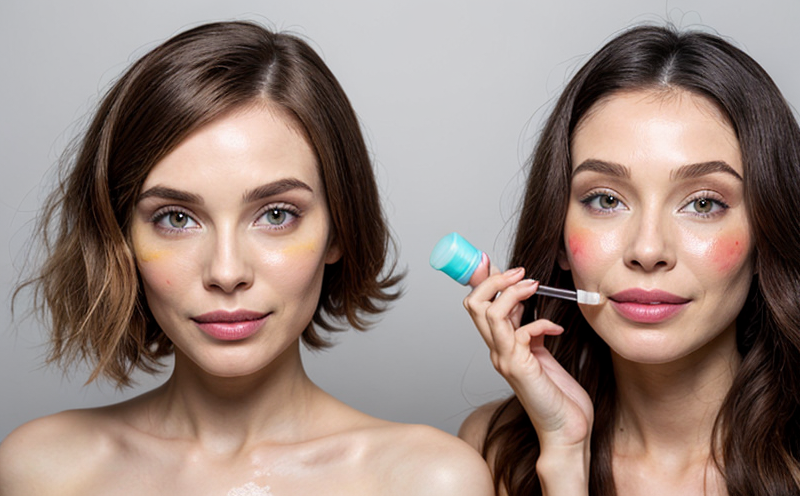Long-Term Safety Testing of Organic Cosmetics
In today’s market, consumers are increasingly drawn to natural and organic cosmetic products due to their perceived health benefits. However, long-term safety testing is essential for ensuring these products meet stringent quality standards and do not pose any harm or risks when used over extended periods. This service focuses on the comprehensive evaluation of organic cosmetic formulations using internationally recognized methods and standards.
Our team specializes in conducting a wide range of tests including microbiological stability, shelf life assessment, irritation potential, allergenicity, and genotoxicity evaluations. These studies are critical for brands aiming to meet regulatory requirements such as those set by the European Union’s Cosmetics Regulation (EC 1223/2009), the U.S. Food and Drug Administration (FDA) guidelines, and other national and regional regulations.
The process begins with a thorough understanding of the product’s ingredients and formulation. This includes detailed chemical analysis to identify potential allergens or irritants that may not be immediately apparent during initial evaluations. We then proceed with in vitro tests using cell cultures to assess the impact on human skin cells, followed by in vivo tests if necessary. For long-term safety testing, we employ accelerated aging methods which simulate real-world conditions over extended periods.
The results of these tests are meticulously documented and reported according to ISO 18529-1:2016 (Microbiological Examination of Non-Medicated Preparations) and other relevant standards. This ensures that our clients receive accurate, reliable data they can use to make informed decisions about their product safety and compliance.
Our services cater specifically to quality managers, compliance officers, R&D engineers, and procurement teams who require detailed insights into the long-term behavior of organic cosmetic products. By partnering with us, these professionals gain access to cutting-edge analytical techniques and experienced personnel dedicated solely to ensuring the highest levels of safety in all stages of product development.
Applied Standards
The integrity of our testing methodologies is underpinned by adherence to internationally recognized standards. For long-term safety testing, we primarily rely on ISO 18529-1:2016 for microbiological examination and ISO 23711:2014 for allergenicity assessment.
To ensure comprehensive evaluation, our team also utilizes ASTM F801-15 (Standard Practice for Accelerated Stability Testing of Cosmetics) which provides guidelines on how to conduct accelerated stability studies. Additionally, we follow FDA’s Good Manufacturing Practices (GMP) and EU regulations concerning cosmetic products.
Industry Applications
| Application | Description |
|---|---|
| Safety Evaluation | Evaluating the safety profile of organic cosmetics over extended periods to ensure they meet regulatory requirements. |
| Allergenicity Testing | Determining whether ingredients within a cosmetic formulation could potentially cause allergic reactions. |
| Microbiological Stability | Evaluating the stability of microorganisms in organic cosmetic products under various conditions to maintain hygiene standards. |
| Irritation Potential Assessment | Testing how much a cosmetic product might irritate human skin, ensuring it is suitable for consumers with sensitive skin. |
| Genotoxicity Evaluation | Detecting any potential mutagenic effects of organic cosmetic products to prevent DNA damage in users. |
| Shelf Life Assessment | Evaluating the shelf life and longevity of organic cosmetics under different storage conditions. |
Ensuring compliance with EU Cosmetics Regulation (EC 1223/2009)
Meeting FDA’s Good Manufacturing Practices requirements
Adhering to national and regional regulatory standards for cosmetic products
Supporting R&D teams in optimizing product formulations for enhanced safety profiles.
International Acceptance and Recognition
The results of our long-term safety testing are widely accepted by regulatory bodies around the world, including the European Union, United States Food and Drug Administration (FDA), and various national authorities.
We work closely with international standards organizations such as ISO, ASTM, and IEC to stay updated on evolving best practices.
Our testing protocols align with global trends towards safer, more sustainable cosmetic products.
The methodologies employed are recognized for their accuracy and reliability, enhancing brand reputation globally.





